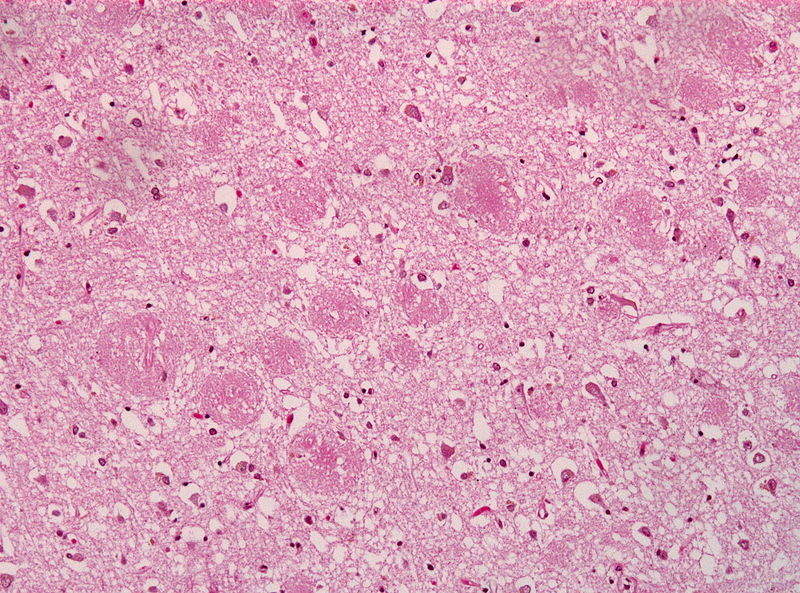On June 12, AstraZeneca and Eli Lilly terminated their two Phase III clinical trials of oral amyloid targeting β-secretase (BACE) inhibitor lanabecestat in Alzheimer’s disease (AD). The partners made the decision to terminate AMARANTH (NCT02245737) and the DAYBREAK-ALZ (NCT02783573) trials after an independent data monitoring committee concluded they were unlikely to meet primary endpoints based on interim analysis. The related AMARANTH extension trial (NCT02972658) will also be discontinued. This termination is preceded by recent failures of BACE inhibitors in late stage clinical development for the treatment of AD.
Alzheimer’s disease (AD) is a progressive neurodegenerative disease that is characterised by memory loss, cognitive impairment, and functional decline. During the early stages of the disease, sleep disturbances and forgetfulness are generally the first presenting symptoms. In the severe stages, patients with AD require permanent observation, either by a home care professional or a family member. The rapidly declining status of patients with AD results in a drastic reduction in quality of life (QOL) for both patients and their caretakers.

Access deeper industry intelligence
Experience unmatched clarity with a single platform that combines unique data, AI, and human expertise.
In AD, plaque deposition occurs in the open regions of the brain caused by atrophy. Neuritic plaques are rich in amyloid beta (Aβ), which is a peptide formed from the transmembrane protein, APP. The exact function of APP is uncertain, but several postulates have suggested various functions, ranging from an adhesion protein for cell-to-cell contact to a modulator of gene transcription activity. APP regulation depends on a signaling mechanism involving secreted portions of the APP complex, called soluble APPα (sAPPα), which acts as a stop-gap mechanism.
In a healthy brain, APP is cleaved by three enzymes: α-, β-, and γ-secretase. α -secretase cleaves APP at a site that prevents Aβ formation, and therefore, has a protective function. This is known as the non-amyloidogenic metabolism of APP. In contrast, beta- and gamma-secretase work at opposite ends of APP to produce Aβ, a process known as the amyloidogenic metabolism of APP. Therefore, α-secretase agonism, as well as β-secretase (BACE) and γ-secretase (GACE) inhibition (by blocking the BACE and GACE cleavage sites on APP, respectively), may serve as potential mechanisms for disease-modifying therapy (DMT).
The future of BACE inhibitor development
AstraZeneca and Eli Lilly have yet to disclose any data from their trials. However, they mentioned that the committee’s decision to stop the studies was not based on safety concerns. Both studies were placebo-controlled and used as their primary endpoint the change from baseline in ADAS-Cog13 at week 104 and 78 (AMARANTH and DAYBREAK-ALZ respectively). The AMARANTH trial, which targeted approximately 2,200 patients with MCI or mild AD, was initiated in September 2014 and was expected to complete in September 2019. The DAYBREAK-ALZ trial, which targeted 1,900 mild AD patients, was initiated in August 2016 and was expected to complete in January 2020.
Other BACE inhibitors in development have recently been terminated as well. In February 2015, Boehringer Ingelheim and Vitae Pharmaceuticals placed the development of BI-1181181 on hold in order to investigate side effects. Its development was later discontinued. Earlier this year, J&J terminated its atabecestat (JNJ-54861911) program, after observing serious elevation of liver enzymes in treated patients. Merck terminated verubecestat’s development in patients with prodromal and mild-to-moderate AD determining that it would be unlikely to be successful.

US Tariffs are shifting - will you react or anticipate?
Don’t let policy changes catch you off guard. Stay proactive with real-time data and expert analysis.
By GlobalDataAccumulated failures of BACE and amyloid beta inhibitors in recent years, especially Merck’s verubecestat inability to improve outcome despite reducing amyloid-beta, revived doubts about the amyloid beta hypothesis. At the same time, there are still other BACE inhibitors in development. Eisai and Biogen are co-developing E2609, now in Phase III trials. The companies recently reported that the drug could lower amyloid beta, but failed to significantly improve AD symptoms. Amgen and Novartis are collaborating on CNP520 development, now in Phase II/III trials. It will be important for companies to take into account mechanisms of action and trial designs when estimating the likelihood of success of their BACE inhibitor candidate.


